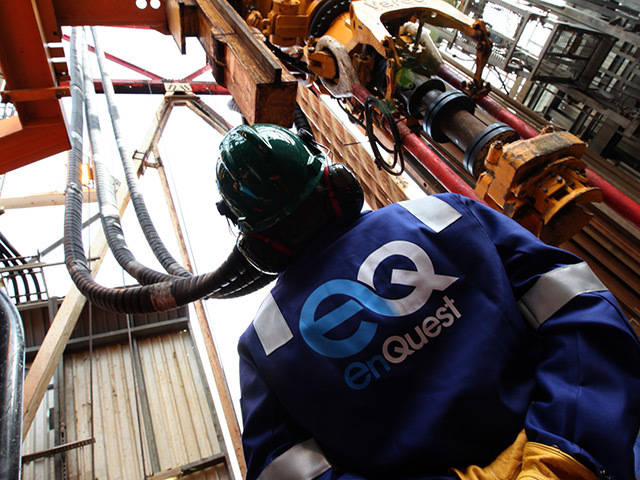
EnQuest said today that operational issues with the FPSO for the Kraken field had forced the North Sea operator to lower its short-term production forecasts.
The London-listed company said commissioning of FPSO is on-going and has been “constraining production so far”.
Its shares were down 9.92% to 29.5p in early trading.
EnQuest’s average daily production rate for the full year is now likely to be in line with the first half of 2017, when it pumped out 37,015 barrels of oil per day.
Kraken, which lies about 80 miles east of Shetland, produced first oil in June.
Read: How Enquest rode the oil price storm to deliver Kraken
EnQuest owns 70.5% of the field, which is one of the North Sea’s largest heavy oil projects. Cairn Energy has a 29.5% stake in Kraken.
The operational issues afflicting Kraken are not expected to continue beyond 2017, EnQuest said today.
EnQuest expects to reach plateau production of about 50,000 barrels of oil per day in the first half of 2018.
On a positive note, the company believes it will save another £78million on Kraken due to the early completion of work on the field’s third drill centre.
Kraken is now expected to cost £1.87billion, down 25% on the original budget.
EnQuest chief executive Amjad Bseisu said: “We were pleased to bring the Kraken field onstream in Q2 2017 at a substantially reduced capex spend, having delivered excellent drilling and subsea programmes.
“The FPSO however is a complex vessel, designed and built to manage the heavy oil from the Kraken development, and it is taking longer than expected to commission during this initial period.
“Nonetheless, we have been very pleased with reservoir performance and the flow rates achieved on individual wells and, we expect the field to increase production in Q4 and to achieve plateau production of approximately 50,000 Bopd gross in H1 2018.
“While we have seen natural declines in EnQuest’s existing production base in H1 2017, Kraken is on course to drive a material increase in EnQuest’s production in 2018 and beyond.”
EnQuest had net debts of £1.499billion at the end of June, compared to $1.491billion at the end of April 2017.
Recommended for you

